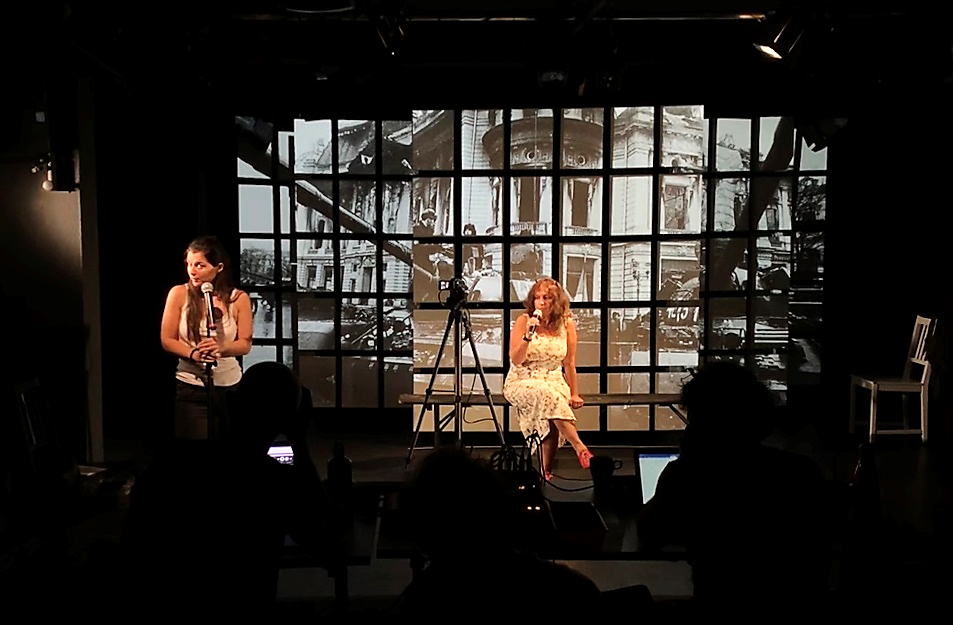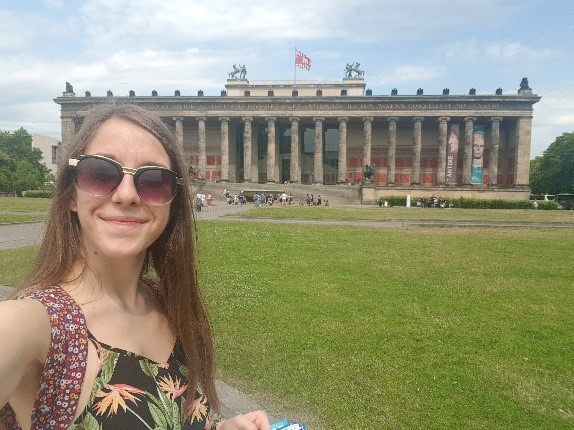by Nataliya Nikolova
Why did I apply for the project?
The decision to apply for the Undergraduate Research Scholarship was completely spontaneous. Although I tend to work on my academic assignments with a lot of enthusiasm, I didn’t think academic research is something I would do as a job, especially considering I would have to focus on one specific area. I prefer to work on diverse projects simultaneously. I was completely wrong thinking that this is impossible in the academic world and professor Sara Jones was a perfect example for this. I had the opportunity to observe her work and was surprised to see how different each working day was for her and subsequently for me as her assistant.
What was the project about?
The project focused on two areas which I have always been interested in- the collapse of the Eastern Block in 1989 (which is not surprising considering I am from Bulgaria-a former communist state) and the Holocaust- probably the most important historical event that every human being should remember and learn from. Professor Sara Jones works with museums, NGOs, a theatre company and other academics to explore how we can use testimony to look back at these events and how we can incorporate life stories in education, but also in other sectors such as the art sector. During my 5-week research experience, I supported a theatre company to deliver a performance at the Birmingham European Festival, which followed the life of an eyewitness to the Romanian Revolution of 1989. I promoted a testimony campaign on Social Media and worked with the team of an art space in Birmingham to collect as many stories as possible for an exhibition based on the stories of Central and Eastern European migrants in the UK. I also wrote a blog summarising the testimonies we had collected by the end of my Scholarship. Furthermore, in order to help Professor Sara Jones to design and deliver new teaching resources that work with testimony in Holocaust education, I conducted a survey to find out what type of teaching material teachers would find most valuable, analysed the responses and wrote a report summarising the results and outlining the resources that are already available.


Interesting story:
I was even given the opportunity to travel to Berlin for an open rehearsal of the theatre performance I mentioned above. This was probably one of the most exciting tasks. I had to record the discussions, take photos and support the team on their way to Birmingham on the following day. I was surprised that my teacher trusted me with this, considering she had only met me at my interview and didn’t know much about my organisational skills. Speaking about skills, my ability to work under pressure was definitely put to the test when my connection flight in Munich got cancelled. I was in Munich at 12.00 and I had 6 hours to get to Berlin to attend the open rehearsal on time. For those of you who aren’t Geography fans, well, it would have taken me less time to get to Austria than to the other end of Germany. Luckily, I managed to sort it out, got a train instead (German trains are super FAST!) and somehow entered the theatre hall in the moment the play started. One thing is sure, I have a story to tell at interviews when I am asked to give an example of a time when I had to adjust to changes over which I had no control or dealt with a difficult situation.


What did I get out of it?
I used to underestimate the impact that research has on regular people. This experience helped me realise how important it is in reality. I learned that academic research is not just about writing articles and books, but it can be introduced to the public in all kinds of creative ways. All three projects I worked on are not only valuable to academics, but to other people as well. The play had its premiere at BE Festival in front of a large audience which had the chance to get a better understanding of life under Communism. The testimony campaign will be presented to citizens in London and Birmingham and will increase the public understanding of the life experiences of Central and Eastern Europeans living in the UK. And finally, the new teaching resources will have a direct impact on students in the UK, who wish to know more about the Holocaust. “Testimony in practice” inspired me to think outside the box and to strive to apply my knowledge and skills to benefit others.
